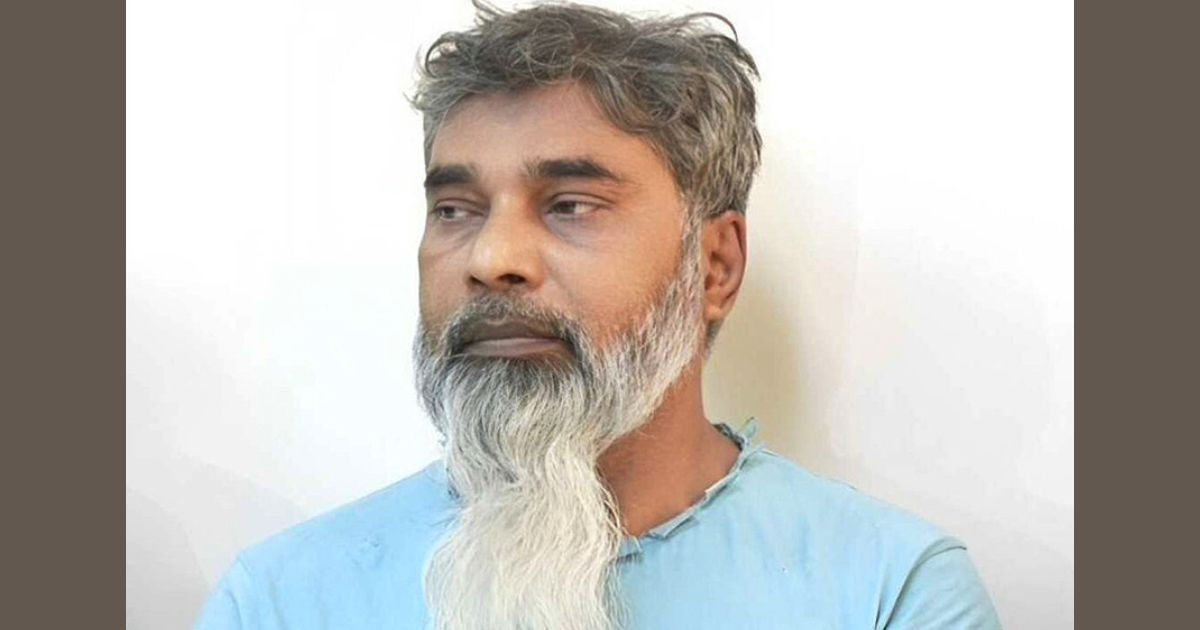Subrata Bain held in secret RAB custody since 2022: Commission
The top criminal was handed over to RAB Intelligence Wing as part of a secret and illegal prisoner exchange programme between Bangladesh and India
Daily Sun Report, Dhaka
Published: 05 Jun 2025

Subrata Bain. Photo: Collected
Top criminal on Interpol’s “Most Wanted List”, Subrata Bain had been held in the Rapid Action Battalion’s secret detention centre since 2022 and was released between 6 and 7 August 2024, the second interim report of the Commission of Inquiry on Enforced Disappearances has revealed.
The Commission submitted its second interim report to Chief Adviser Prof Muhammad Yunus on Wednesday, while the CA’s Press Wing circulated portions of the report on Thursday.
Bain is a notorious Bangladeshi criminal involved in numerous serious offences, including murder, extortion, and abduction. He was listed among the 23 most wanted criminals by the Bangladesh Government in 2001 and has long been the subject of an Interpol red notice.
He also escaped from a Nepalese jail in 2012 by digging a tunnel. He was arrested multiple times in India, including in Kolkata, but managed to secure bail and continue his activities.
The report revealed that at the end of April 2022, Bain was handed over to RAB Intelligence Wing as part of a secret, illegal prisoner exchange programme operated between Indian and Bangladeshi intelligence agencies.
“In return for receiving Bain, Bangladesh, via RAB Intelligence Wing, handed over one of its own citizens, who had been kept imprisoned at the TFI Cell, to its Indian counterpart.”
The Commission was able to locate this individual. “We discovered that after arriving in India, a case was filed against him and he served jail term there before returning to Bangladesh. His presence in India was confirmed through Indian case documents he supplied to us. His captivity inside the TFI cell was corroborated by a fellow detainee who had seen him there and learnt his name. It was only after tracing this arc that we discovered that he was the person who had been exchanged for Bain.”
According to the Commission, “Bain complained of being brought to Bangladesh on 27 Ramadan 2022. This date matched the Indian case documents we saw, which confirmed the timeline of events. While held at TFI, Bain developed a range of illnesses, including piles, but appeared resigned to not retaining any contact with the outside world. Even officers who served at TFI used to avoid meeting him. Contrary to rumours circulating online, we have found no indication at all that he was receiving any form of training during his stay at TFI. Instead he appears to have led a secluded life of captivity.”
Since his release, he had reportedly re-established his criminal empire, and secured a wealthy patron with strong political connections, and, “to the best of our knowledge, he resumed ordering killings.”
Prior to his arrest at the end of May 2025, law enforcement agencies were struggling to apprehend him. This case raises significant concerns and illustrates the systemic consequences of enforced disappearance as a practice, the Commission said.
According to the report, orders to detain someone of such high international notoriety could not have originated from within RAB alone.
“As far as we understand RAB’s organisational culture, such a decision must have come from the very top of the civil administration, at least from the level of the Home Minister, likely even higher. Still, it is unclear why RAB Intelligence kept Bain secretly imprisoned with no contact with the outside world at all for so long, particularly when they eliminated captives for far lesser offences. We understand that there were specific plans to eliminate him but these did not come to fruition; it is our assessment that he simply stopped being a priority captive once he was securely locked away inside a TFI cell.”
The commission said, “Beyond ascertaining that he was kept in near isolation during the entire period at RAB’s TFI Cell, we cannot definitively speculate on why Bain was never formally charged. One possible reason is that his illegal transfer complicated his legal status and made formal prosecution politically or diplomatically difficult. Another is that Indian agencies, with whom RAB Intelligence Wing retained close ties until the very end, might have influenced the decision for their own gains.
“What is clear, however, is that this level of secrecy, illegality, and informal manoeuvring has not strengthened Bangladesh’s domestic security system. In fact, it has likely weakened it. That is the lasting lesson of this case. Enforced disappearance is so often defended in the name of national security, when, in reality, it frequently undermines that very goal,” it added.

